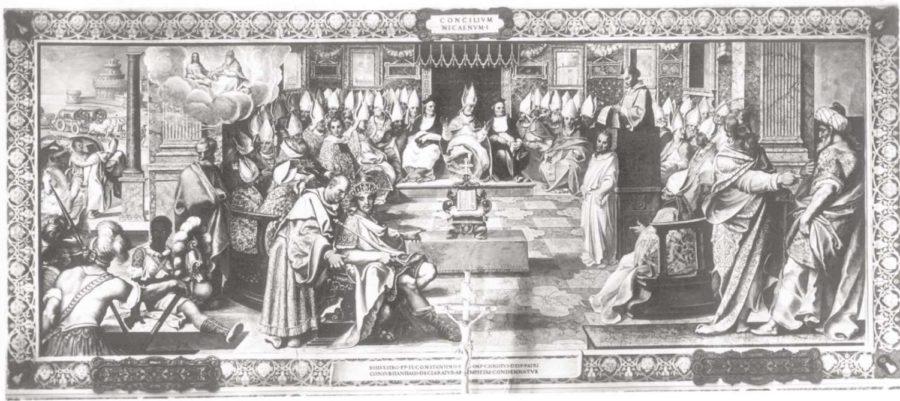Letter: Books of the Bible chosen based on accuracy, consistency
Photo courtesy Wikimedia Commons
Jason Burdine opines the books of the Bible were chosen for their accuracy based on the Christianity’s beliefs
October 25, 2011
In a column alleged to be focused on the relationship between religion and morality, Craig Long seized the opportunity to take some cheap shots at the Bible. For the sake of time, I will focus on one. He states, “The Roman Catholic church omitted entire books of the Bible as they did not fit with the beliefs of the church at the time. Are those original texts from the Bible any less important or correct than what the church included?”
First off, Long provides no support for his claim that the Roman Catholic Church omitted books of the Bible. It is true there are a number of books which the early church did not include in the canon. Yet it is not fair to say these books were omitted from the Bible when the Bible wasn’t even canonized yet! When the Bible was canonized definitively prior to the end of the fourth century, books which weren’t included were left out for a number of reasons. The canon of 66 books that was originally accepted is the exact same one protestant Christians still use today.
So how did the early church fathers decide which books were God-inspired scripture and which were not? One main determinant was concern about authorship; whether or not there existed substantial evidence that the book was written by either an apostle (for the New Testament) or an accepted Jewish prophet (for the Old Testament). A book was also excluded if the book did not even claim to be inspired scripture or contained historical inaccuracies. Lastly, a book was excluded if it was not accepted by the vast majority of the Christian church, and/or contradicted the books which were widely accepted as inspired. All books included in the canon pass a majority of these requirements, while none of the books excluded pass even a few of these requirements.
In short, Long fails to realize that because Christianity as a religion is either proven true or proven false based on the historical events surrounding the life of Jesus, those books which lacked historical accuracy and eye-witness authorship should clearly not carry the same authority as those that do.
I have researched the opinions of 13 church leaders from the first through third centuries concerning which books should be included in the canon. With the exception of Marcion (deemed a heretic) there was overwhelming consensus that the 27 books which make up the New Testament canon were in fact scripture. There are another 13 books of Christian writings that were well circulated at the time, but not a single one of these books was supported by more than a handful of leaders as being scripture.
When we examine the facts, we can be confident that the books we have in the Bible today give us the most historically accurate picture of the life of Jesus and the beliefs of the early church about him. If Long is really concerned about the importance of books which did not make it into the Bible, he can examine the books of the Apocrypha, which the Catholic Church began including in their Bibles in 1546.







